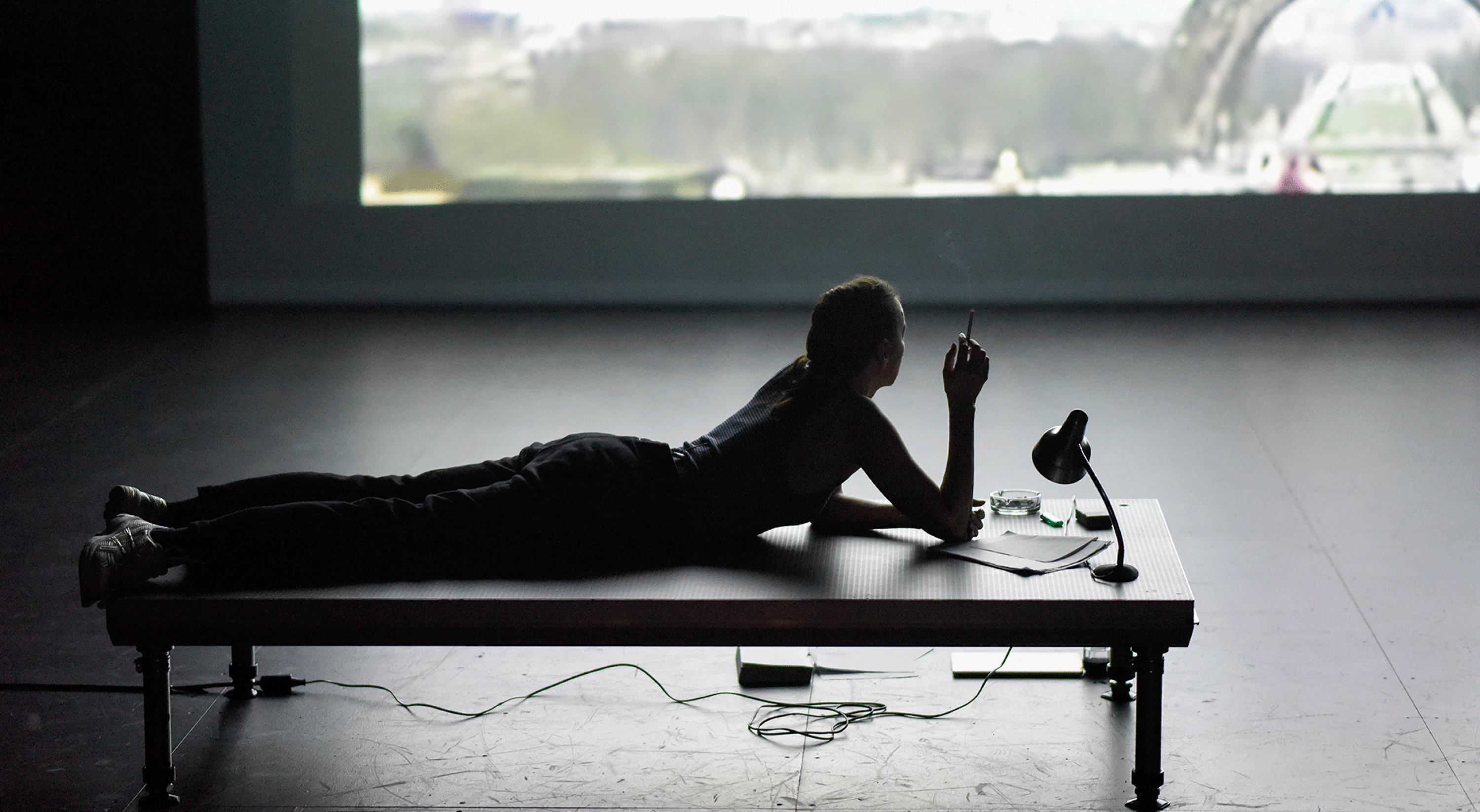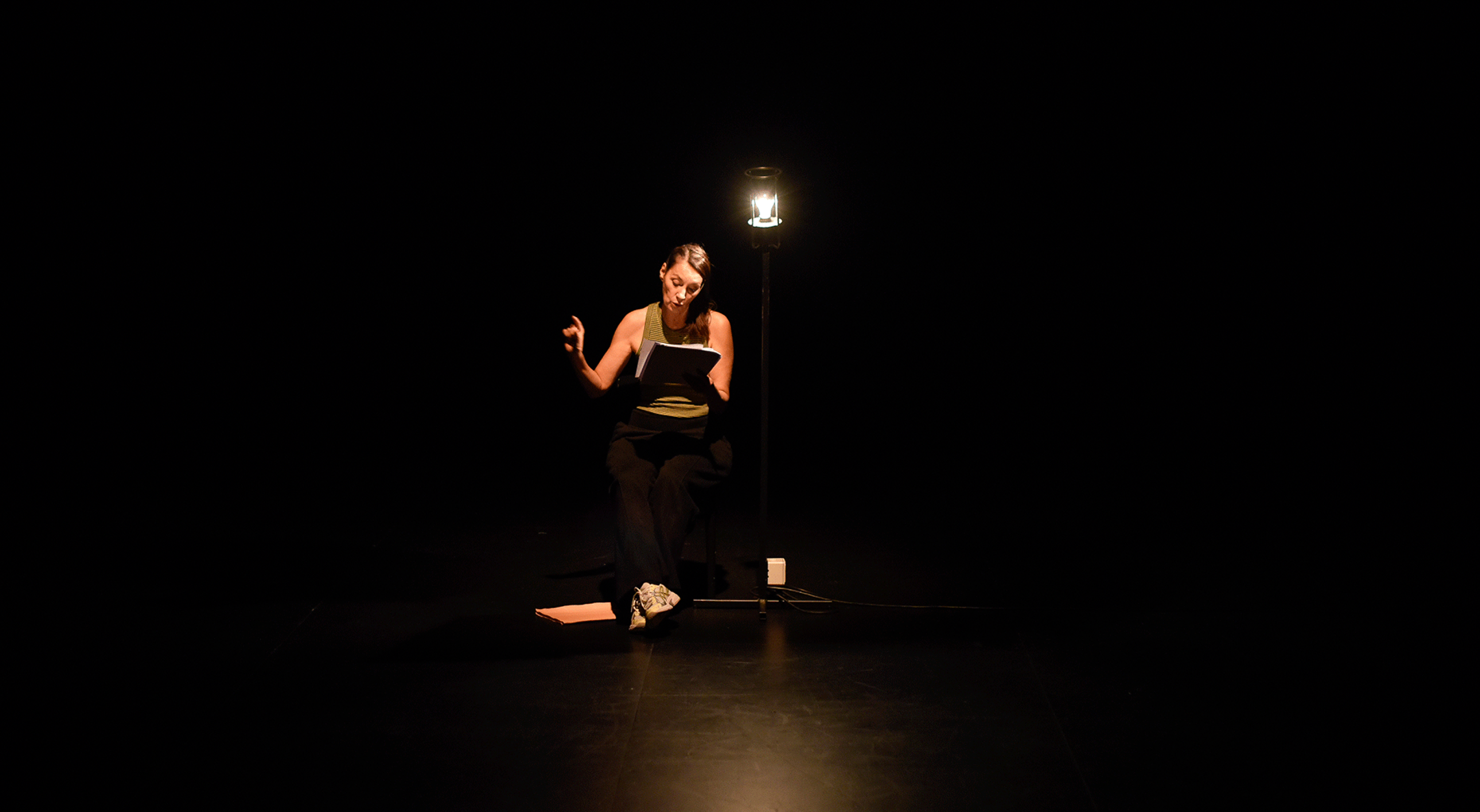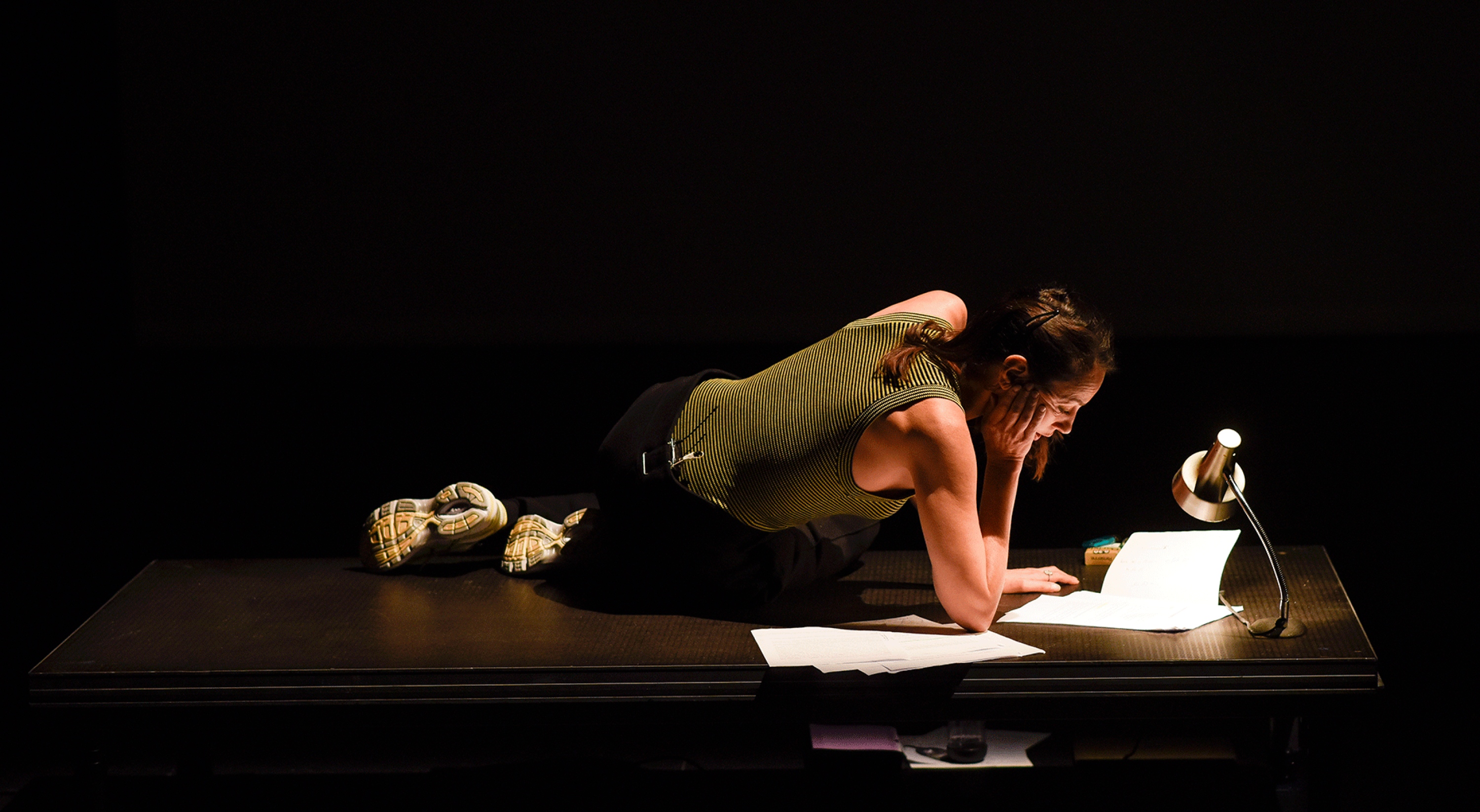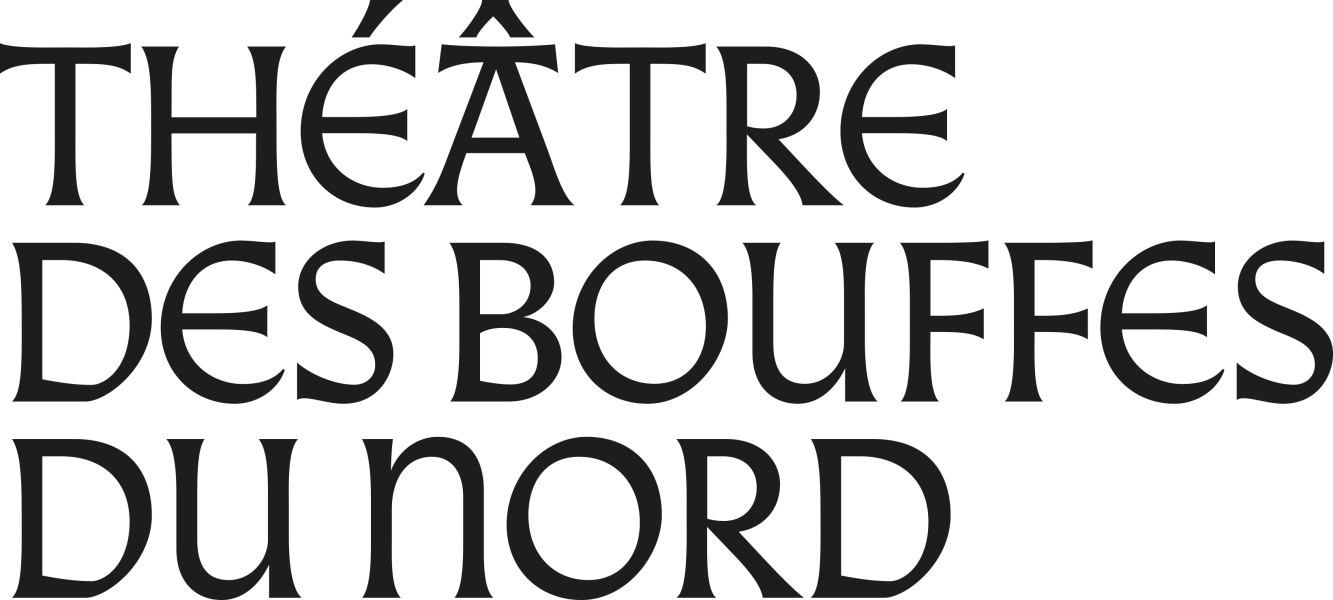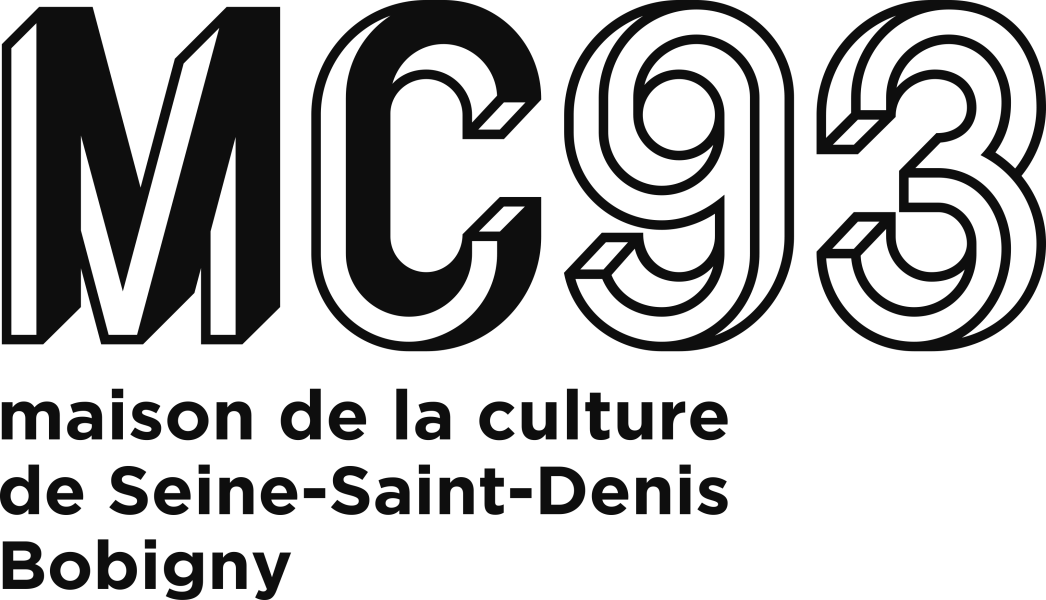Jeanne Balibar
Les Historiennes
septembersept 28 - october – oct 28
novembernov 11
Staging and performance, Jeanne Balibar
Assistant, Andrea Mogilewsky
Text, Charlotte de Castelnau-L’Estoile, Anne-Emmanuelle Demartini, Emmanuelle Loyer
Production, Elizabeth Gay
General management, Martine Staerk
With support from the technical, administrative, production, audience development, and communication teams from Théâtre Vidy-Lausanne
Production Théâtre Vidy-Lausanne
Co-directed by Centre International de Créations Théâtrales/Théâtre des Bouffes du Nord (Paris); Festival d'Automne à Paris for productions at Centre International de Créations Théâtrales/Théâtre des Bouffes du Nord (Paris)
Special thanks to Forte forte, None of My Business , ASICS , Catherine Miran & Radical Pr, Le comité de la Fondation Chantal Akerman, Studio Canal, RTS Radio Télévision Suisse
Audiovisual extracts quoted
William Klein, Mr. Freedom, 1969 - Guy Belfond, Christian Thivat, Michel Zemer - Films du Rond-Point, O.P.E.RA.
Alain Resnais, L’année dernière à Marienbad (Bande Annonce), 1961 - Anatole Dauman, Pierre Courau, Raymond Froment - Cineriz, Cormoran Films, Silver Films, Argos Films, Cinétel, Terra Film
Marguerite Duras, Baxter, Vera Baxter, 1977 - Stéphane Tchalgadjieff, Danièle Gégauff, Stella Quef - Sunchild Productions, Ina
François Truffaut, Baisers Volés, 1968 - François Truffaut, Marcel Berbert - Les Films du Carrosse, Les Productions Artistes Associés
Jacques Demy, Peau d’âne, 1970 - Mag Bodard - Marianne Productions
Conversation Varda/Seyrig, 1972 - Les archives de la RTS
Chantal Akerman, Jeanne Dielman, 23 Quai du Commerce, 1080 Bruxelles, 1976 - Paul Vecchiali, Liliane de Kermadec, Alain Dahan, Guy Cavagnac, Corinne Jénart, Evelyne Paul - Paradise Films, Unité Trois, Ministère de la Culture Française de Belgique
Three women return from the past thanks to three female contemporary historians who bring them back to life via three separate accounts. Here, the actress Jeanne Balibar uses them as the basis for a staged reading. Four women from today’s world take a particularly eloquent and incisive look at three emblematic female destinies.
Time has still not erased neither the memory of the Portuguese slave Pascoa put on trial in the year 1700 for bigamy, nor Violette Nozière, a victim of incest condemned to death in 1934 before receiving a full pardon 1963, nor the incomparable actress Delphine Seyrig, Marguerite Duras’s muse and militant activist involved in the feminist struggle during the 1970’s… In this production, three women with their feet firmly rooted in the history of the times they lived in and three unique destinies are brought to the stage. The latter, on a par with the historical study, have the power to make the dead come back to life by bringing them closer to us.
Whilst taking heed of each author’s particular style, Jeanne Balibar, gives voice to these struggles from the past. She transforms them into literature, at its purest, seizing upon the words in order to turn them into the stuff of theatre. Audiences are given an insight into three different paths in life, each of which speaks volumes to us about struggle and freedom. Three historians and an actress involve us fully in this unique and captivating experience, and enable us to hear, in a free and unforced way, much about the feminine condition.
In the same place
